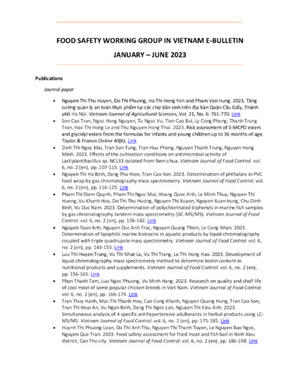
Choice heuristics and livestock farmers' preference heterogeneity for Rift Valley fever vaccines in Uganda
Abstract
Rapid spread and erratic outbreaks of Rift Valley fever (RVF) disease across the African continent continues to pose serious threat to animal, public health, and regional livestock trade. Failure to institute timely control measures will have serious implications on food security and livelihoods. Among existing control options for the disease, vaccines are reported to be the most cost-effective. However, no RVF vaccines are currently registered for use in Uganda. Prior to approval, reservations exist concerning the uptake of vaccines by farmers as they have to weigh in several features and associated risks before acceptance. This study utilizes data from 444 livestock farming households in Uganda to elicit farmers’ preference heterogeneity and the influence of choice heuristics on their preferences for RVF vaccines. The empirical results reveal that two livestock farmer segments exist with respect to RVF vaccine preference. The single dose vaccine attribute is the most highly valued by farmers. Further, livestock farmers’ conditional perceptions and risk attitudes play a major role in vaccine choice decisions. The paper highlights the need for careful consideration of livestock farmers’ preference heterogeneities and intrinsic motivations such as risk attitudes and conditional perceptions when designing policy instruments for the promotion of RVF vaccination programmes.
Citation
Asindu, M., Abdulai, A., Bett, B., Roesel, K. and Ouma, E. 2024. Choice heuristics and livestock farmers' preference heterogeneity for Rift Valley fever vaccines in Uganda. Journal of Behavioral and Experimental Economics 111: 102226.









